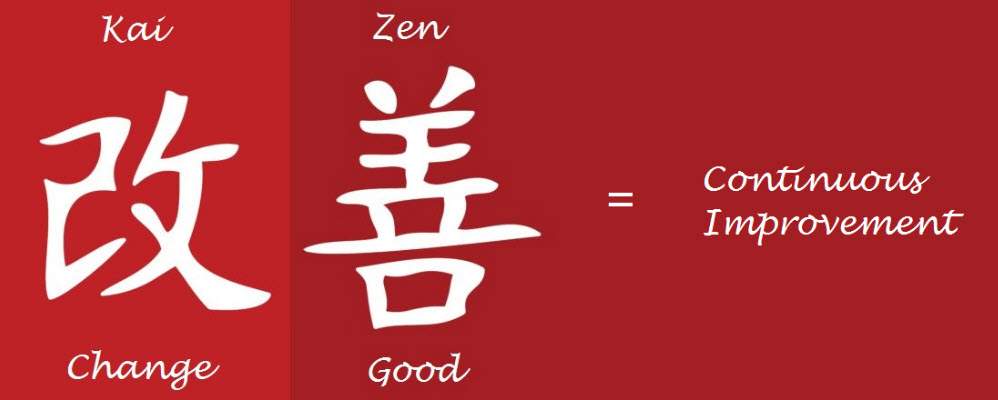Kaizen is continuous improvements where changes are required in organization’s processes. The approach could either be a one time implementation or a step by step change over time. One of the top benefits provide by Kaizen is that it is continuous and not a time limited process. Kaizen offers the opportunity of further optimization and improvement all the time. It supports to empower employees when employers implement Kaizen in their organization.
Because of various beneficial outcomes of continuous improvements, many employers and business owners take interested in implementation of Kaizen in their organizations.
Basic steps to implement Kaizen in an Organization
Involvement of Employees
First, it requires to involve the employees of your organization because it will support to empower workers as well. E.g. if a customer care service executive receives feedback regarding improvement of a processes, then the feedback can be noted by employers and he/she could be made individually responsible to implement the changes in the organization.
In order to implement Kaizen in an organization, workers of a company need to be motivated and involved. The workplace should be setup in such a way that it does not stop change used to drive continuous improvement. To ensure this, it requires full cooperation of workers and communication tools between employees and employers is critical.
Identify Problems
This step for implementing kaizen in an organization is to agree and identify the issues in your organization. To do this, it requires 360-degree feedback from employees which keep them involved. Following, all identified processes within organization that require improvement can be drawn up.
This could involve the finance department, production, customer care or any other department which requires improvement. You can create list of issues and problems on a “To Do” list or database. If the number of opportunities is too high, you can shortlist the top ones to begin with those first. Since Kaizen is a continuous process, you will be addressing the remaining opportunities later.
Think and Look for Solutions
For this step it is often beneficial to have a few people contributing in brainstorming sessions. Manager can select their team of employees who are experienced with solving problems. They need to be able to dedicate a specific amount of time to sort for the right solution which the organization is facing already.
The timeline is considered very crucial and you want to generate solutions in calm and creative ways. To do so, you must not ignore any suggestion which may be useful later, even if they are not completely utilized and implemented. Note down the solutions coming from employees and use their experience to shortlist the solution which is considered as the best on them. The finalized solution can then be taken to the next step for implementation.
Implementation
Initially, a smaller-scale implementation of a solution is best practice to analyze new theories, especially in bigger organizations. Many managers avoid the testing phase because of overthinking, complacency, or plain ignorance. They implement scale changes in an organization instead of following small steps first to apply new ideas in a pilot environment for initial testing.
The other part is that the implementation needs to be implemented in well-planned structure. When ideas need to be more mature, this should be considered before implementing a half finished solution. Well planned, managed and controlled implementation is important for solutions to be as effective as possible.
Check and Audit
Throughout the implementation it is essential it is checked and audited to ensure everything is implemented as planned. This is required to ensure that implementation is carried out effectively and without any adverse effects.
As for the managers, they must have the right person assigned for the implementation. Commonly, this task is assigned to a team leader who will ensure the implementation through a team, keeping tack on the progress and update the manager as the project moves along. Audits must be conducted from time to time and progress must be reported to senior management were relevant. Finally, concluding the results is main object of this step.
Set Standards
If the outcome is not positive, then you must revisit the solutions implemented and revise them as required. There are many benefits to Kaizen which slowly but surely will be realized as the improvement projects are being implemented.
When results are found to be positive and a process improvement is identified, then the process should be standardized across all departments to harvest all the benefits.
Repetition
As you have optimized the top short-listed processes you move on to repeat the same procedure for the next processes on your priority list. The true potential of kaizen is continuous improvement through slow & gradual change.
When you implement Kaizen in an organization, over time, it shapes the culture in the organization to eliminate problems and to further improve processes so that everything runs smoothly. Kaizen helps to empower employees and create relationships in the workplace. As a result, the entire organization can look forward to continues improvements.
